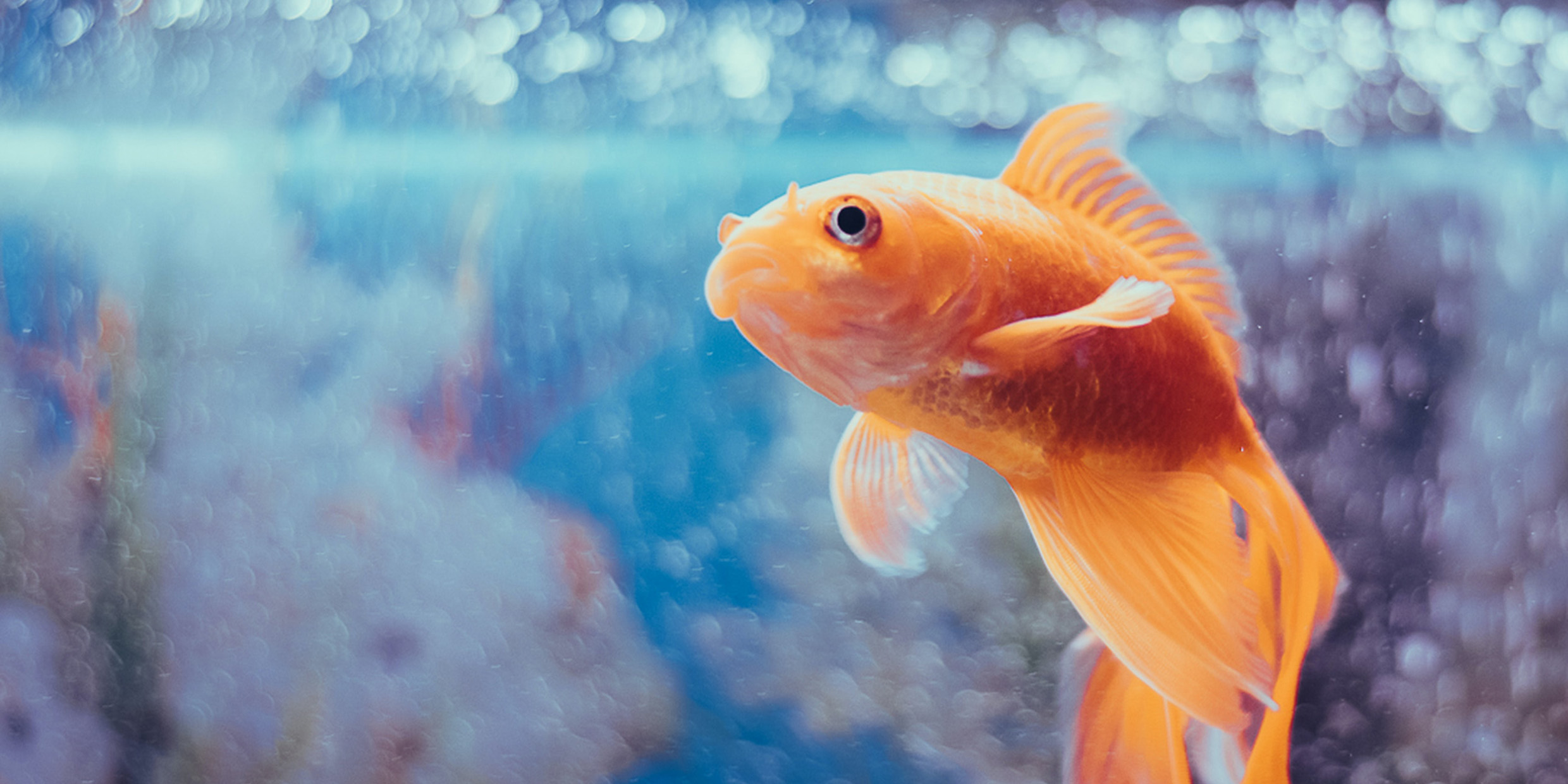Originally published 2 December 2003
As dumb as a goldfish.
I mean, what could be dumber than swimming around in murky water all day — glassy-eyed, slimy-scaled, cold-blooded — waiting for someone to sprinkle food flakes into the pond or tank. On a scale of smarts, goldfish would seem to fall somewhere between a limpet and a stone.
Conventional wisdom has it that fish have a memory span of about a second.
But conventional wisdom, it turns out, is wrong. Goldfish are not the dummies they are made out to be.
Scientists at Plymouth University in England have successfully trained goldfish to push a lever to get food, and — get this — to do it at the same hour every day. And the fish remember what they have been taught for months.
Not exactly the science story of the year, but it does cause one to reflect on the nature of memory. What’s going on in those tiny ichthyic brains that lets the goldfish remember when and where to go for dinner?
There was a time not so long ago when scientists thought memory might be molecular—stored as proteins or RNA molecules that have somehow been modified by experience.
The molecule theory of memory rested on experiments with worms. The worms were taught to navigate a simple maze. Then they were ground up and fed to untrained worms, which seemed to navigate the maze without training. Only molecules, it was said, could have survived the transfer.
Those experiments have been discredited. Scientists now overwhelmingly believe that memories are stored as webs of connections between spider-shaped brain cells called neurons.
Each neuron is connected through electrochemical connections to thousands of others. According to the current view, experience fine-tunes the connections, strengthening some, weakening others, creating a different “trace” of interconnected cells for each memory.
As the goldfish were trained by the British scientists, a cobwebby tangle of neurons was established in their brains: “Over here, push the lever. It’s supper time.”
The human brain contains 100 billion neurons, and each neuron is in contact with about a thousand others. If we think of each connection as being “on” or “off” (a crude simplification), then we can say that the human brain stores roughly 5,000 gigabytes of information (the equivalent of 5,000 billion keyboard characters).
Some of these connections come hard-wired by our genes and reflect millions of years of evolution. Others are as fresh as our last remembered experience.
By way of comparison, the hard drive of my laptop computer has a capacity of 40 gigabytes, enough to hold my complete music CD collection, hundreds of photographs, every word I have ever written, and software of every sort, including the operating system of the computer. And still it’s mostly empty.
I have a 64 megabyte (mega = million) flash-drive memory device for my computer that’s about the size of a stick of gum — or a very small goldfish. It holds every Science Musings column I have written in 20 years, nearly a thousand columns.
Should we be surprised then that goldfish are smarter than we think they are?
If there is something in the human body that can fairly be called a soul, it is surely that ineffable electrochemical web of connections that was partly bequeathed to us by our genes and partly records a lifetime of experience — including, of course, the cultural preferences we absorbed from our parents and teachers.
Some folks are put off by the idea of an electrochemical soul, and prefer the older notion of a self that is independent of our physical bodies. As for myself, I love the notion of that effervescent cobweb of neuronal connections contrived of the ineluctable stuff of creation by 4 billion years of evolution.
And I love, too, the way the new idea of soul binds us in a seamless web to all other creatures, goldfish included, and to the fabric of the universe itself.
And now, I gotta go. I just remembered it’s time for dinner.



